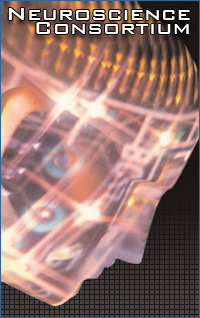
What We Do:
The mission of the NIDA Neuroscience Consortium is to provide a forum to facilitate the development of neuroscience research programs that bear on NIDA’s mission to understand, prevent, and treat drug addiction.
The Consortium membership consists of interested individuals representing all divisions and offices within NIDA, including divisions of basic, clinical, and epidemiological research, review and grants management branches, and policy offices. The Consortium achieves its mission by sponsoring invited speakers at the “cutting edge” of neuroscience research to inform programmatic decisions that set research priorities, organizing symposia and workshops for the scientific community, and providing information and resources at scientific meetings. The public is encouraged to contact the Consortium with ideas to promote the neuroscience mission of NIDA and to locate contacts among the program staff for the development of neuroscience research.
Research has clearly established that addiction is a brain-based disease. This knowledge guides NIDA’s Neuroscience research program, which focuses on the brain mechanisms that underlie drug use, vulnerability to addiction, and the consequences of drug use. A thorough understanding of the neural mechanisms that underlie such behaviors as impulsivity, learning, memory, reward responsivity, emotion and decision-making are critical for the development of effective treatments for drug addiction as well as effective prevention strategies. Consequently, the interests of the Neuroscience Consortium at NIDA embrace and draw from a broad range of areas of scientific inquiry. These include both human and non-human animal studies in basic and applied research in areas such as genetic, cellular, and molecular mechanisms, the delineation of neural pathways and neurotransmitter systems, and an understanding of relevant behavioral and cognitive processes.
Scientific Goals in Neuroscience:
Related Funding Announcements:
Consortium-Sponsored Activities:
- “Frontiers in Addiction” Mini-Convention
- Society for Neuroscience Jacob P. Waletsky Memorial Award
- “Cutting Edge” Seminar Series
Consortium Members:
Additional Links of Interest:
- NIH Blueprint for Neuroscience Research
- NIH Roadmap for Medical Research
- Society for Neuroscience
- Winning Slogans for Annual Neuroscience Meetings
- If you need the NIDA Drug Supply catalog, please contact Hari Singh, Ph.D.
Contact:
Questions? Contact Drs. Cathrine Sasek or Mary Kautz, Neuroscience Consortium co-Chairs.
Featured Publication
Drugs, Brains, and Behavior - The Science of Addiction
As a result of scientific research, we know that addiction is a disease that affects both brain and behavior.






